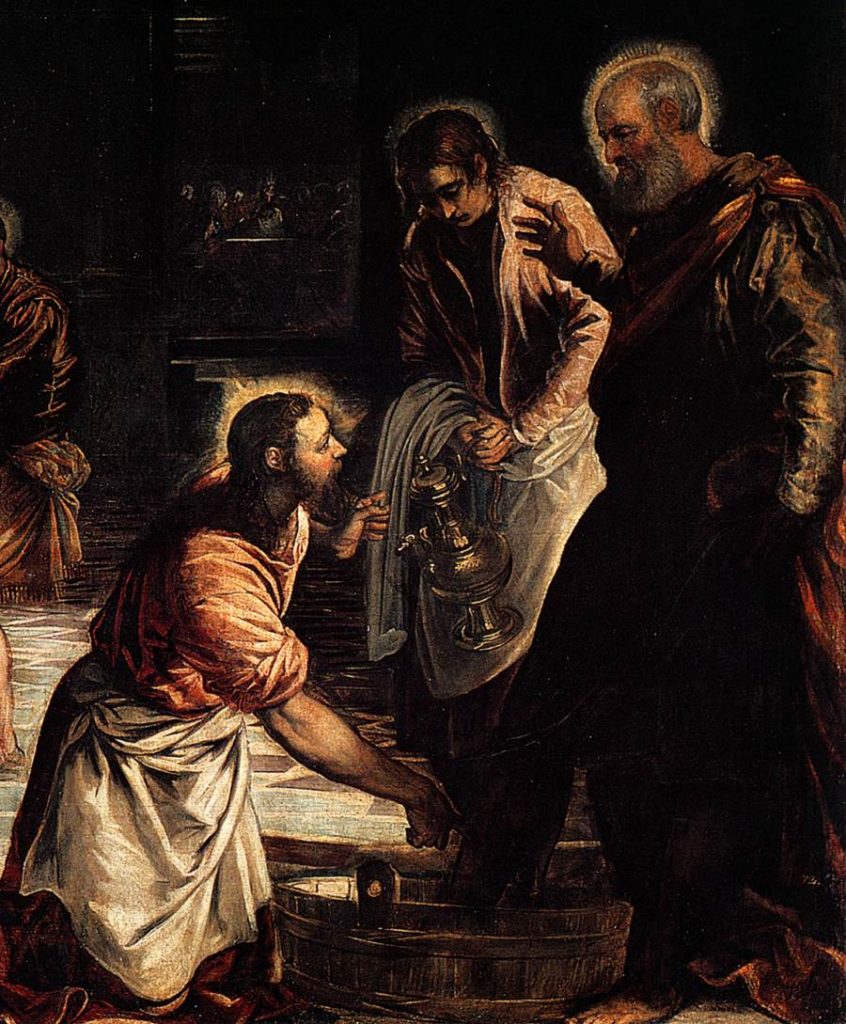When, a few weeks ago, my PhD supervisor, Klaus von Stosch, who is also ordinated as a deacon in the Catholic Church, asked me whether I would like to join the church service on Maundy Thursday so that he could wash my feet as a symbolic representative of one of Jesus’ disciples, it was with a mixed feeling of shame (he was my “Doktorvater” after all!) and excitement (how many Muslims had ever had the chance of being washed as a disciple of Jesus?!) that I responded positively to him.
It was still Ramadan that day. So, after having my quick breakfast (iftar) that evening, I rushed to the church to perform my (paradoxically) shameful, honourable role. To my great interest, the content of the preaching of my supervisor that evening included the problem of shame, specifically in the context of Maundy Thursday and on the matter of revealing one’s feet barely in front of another human being to be washed. He explained in his preaching how, many years ago, when he was asked for the first time to let his feet be washed by a priest, the presence of the Holy Spirit in him made the shame of the experience fade away and all that remained for him from that experience was the memory of the courage and inspiration that he felt at that moment. It was a very wise choice of content of preaching! Having listened to this, I tried to overcome my shame with almost the same strategy. But…
At the moment of performing the ritual, I realized that the nature of my shame was somehow different from what I had just listened to. My shame was not only due to the fact that I was letting my supervisor, whom I respected so deeply, wash my feet, but also due to the fact that I, as a Muslim woman, had hardly allowed a male person, other than my father, to touch my feet. At that moment, I started asking myself: how would I feel if Jesus himself was doing this? As a Muslim, I always had a deep feeling of respect and appreciation for God’s prophets. I could not imagine that the first thing that I thought, if Jesus himself was washing my feet, would be that he is a man! He, like all other prophets for whom I have a deep feeling of appreciation, is, more than anything, a messenger of God! Reflecting on these thoughts, I was back to my experience of the moment, observing my supervisor now drying my feet with the towel. It was done! I had performed my symbolic role as the disciple of Jesus. Performing this role, interestingly, had nothing to do with conditions such as my lower academic rank (than my supervisor), my being a Muslim, or a woman. Through my participation in this ritual, I had simply experienced the unconditional love of God for all humankind. This experience taught me, one more time, that Divine love or raḥmah toward humankind is greater than all the shame that exists in the world.

Nasrin Bani Assadi ist Wissenschaftliche Mitarbeiterin an der Katholisch-Theologischen Fakultät der Universität Bonn und am International Center for Comparative Theology and Social Issues.
#interreligious #discipleofJesus #MaundyThursday
